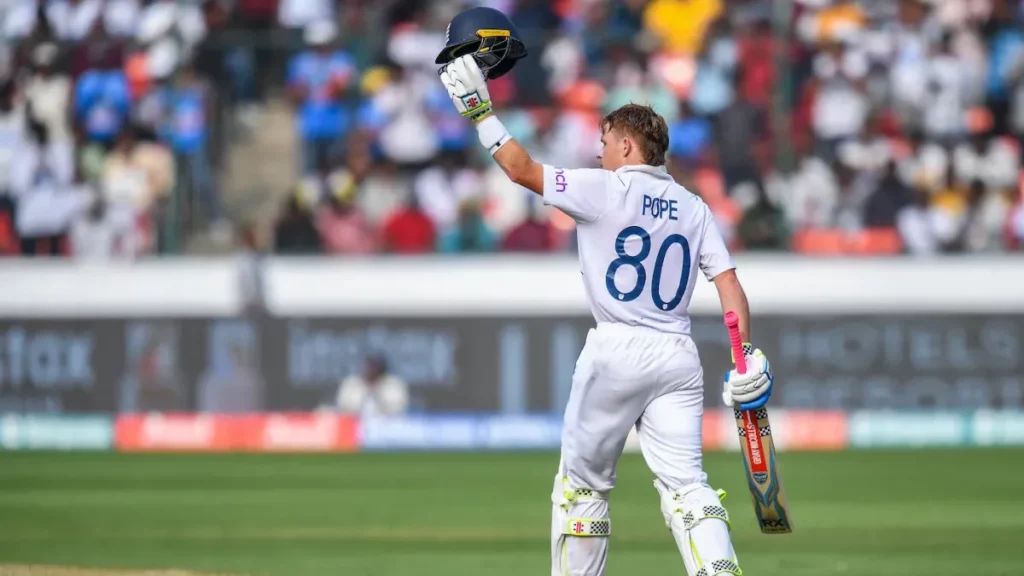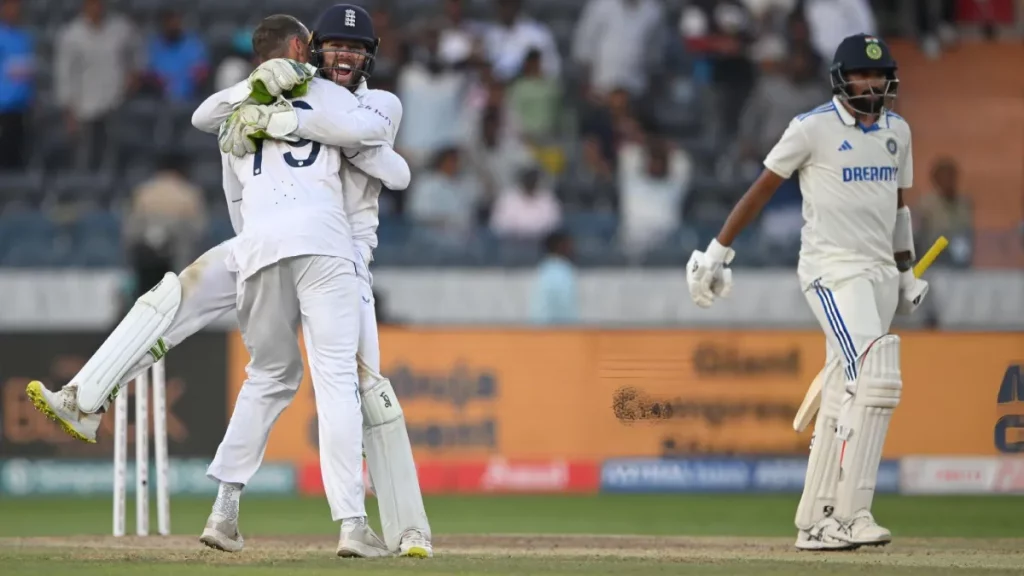Test cricket has been around for centuries, and through years of tradition, a specific style of play has formed. It has frequently revolved on guts, determination, waiting the game out, and allowing the adversary to crack first.
Many would term it as tough cricket, and it has witnessed numerous teams ruling over time. Extravagance was a key characteristic of many of these groups. Yet, talking about Test cricket, it felt more like a trial of endurance above all.
However, as is common in several sports, someone occasionally comes along to dispute such assumptions. Someone or an organization that mocks the old manner of playing and proposes a method that was formerly not only unthinkable, but also judged silly, foolish, and other similar words.

England is presently the leading Test cricket team. And Bazball (or whatever you name it) is that approach.
England’s cricket team, led by Ben Stokes and Brendon McCullum, has trumped India in two consecutive Tests. Though these victories have a two-year gap, current records highlight their accomplishment.
The recent win stands out more than their success in Birmingham in 2022. Why? Because it happened on Indian soil against a team that barely lost since wrapping up their home Test series against England back in 2013.
The triumph is significant in its own right. However, it is the method that will be remembered long after this series or this particular ensemble cast has ended. It began as predicted, with England getting bowled out for a total of less than 250 runs after attempting strokes that the textbook explicitly warns against in these conditions.
They subsequently conceded more than 400 runs, shedding focus on their bowling reserves and questioning if they had chosen the correct players. Tom Hartley, who had not yet played a Test, was their second front-line spinner, joining Jack Leach, who had last played a Test in June 2023. All the while, Liam Dawson, a prolific county wicket-taker, competes in T20 franchise competitions.
Funnily enough, former New Zealand cricketer Jeetan Patel, who now works as England’s spin-bowling coach, said after Day 2 that if no one knew the score, they would have assumed England was the side on top. England were down by 175 runs at the time.
That sounds ludicrous. But perhaps they simply believe in themselves so strongly. They can win in any circumstance. Against any opposition. In any circumstance. As long as they remain true to who they think they should be.
Pope’s masterclass keeps England alive in Hyderabad Test

Ollie Pope delivered one of the greatest knocks of all time, unleashing reverse sweeps and sweeps as frequently as defensive strokes. He played these strokes with the same confidence that Virat Kohli would play a cover drive or Rohit Sharma would play a pull, and it was evident from away that England was completely committed to this strategy.
Prior to Pope’s innings, Ben Duckett, who had had a difficult time on his last India visit, continued to attack with enthusiasm. Zak Crawley, who was never far from a streak of poor scores, kept going, unconcerned about how he looked and fully committed.
The bowlers then stood up in the fourth inning. Hartley caused the ball to spin square before straightening it, creating the appearance of spin. Leach, bandaged left knee and all, contributed just enough to keep the pressure on Hartley when he needed a rest.
Among all of this, there was a Ben Stokes moment. There has to be one. Ravindra Jadeja had pushed the ball to mid-on and gone for a single. Stokes had already fumbled at midfield twice during the practice, allowing the run.
This time, he appeared to outrun it. Despite being a right-handed thrower, he collected the ball on his left. According to the textbook, unconventional is capitalized U. But that simply paved the way for what is widely regarded as the finest back-flick throw in cricket history.
These may be individual events, and they certainly do not provide a whole picture of what happened in Hyderabad during four frantic days. When viewed in context, however, the overarching concept is fairly obvious and difficult to overlook.
When you tell this England squad that anything is impossible, they will make it happen.
They may encounter scorn along the road because they have attacked the existing system, but they will remain fully committed to it. They may fall down on their faces, but they will fly higher than anybody else if everything comes together, which has happened frequently under this leadership group.

There is a rumour that Stokes and McCullum (the namesakes of this style of cricket, known as Bazball), dislike the appellation. There is a sense that they want the focus to shift to the group rather than simply one individual’s success.
Deep down, they must be proud (not of the name), but of the style of cricket that this team plays. It is fearless. It sometimes exudes a carefree attitude. On occasion, some call it foolish. However, it also represents sincere devotion to the cause.
Critics claimed they couldn’t sweep and reverse-sweep their way to huge numbers in the subcontinent. They were adamant that there was no way to recover from 2-0 down in an Ashes series against the recently crowned World Cup winners, and that this offensive batting strategy would definitely not work in India.
That a left-arm spinner with just 20 First-class matches under his belt (he averaged more than 35, by the way) and a part-time off-spinner whose primary purpose is to score runs rather than take wickets could almost outbowl India’s formidable spinning trio.
That Test matches against a team with India’s batting and bowling abilities cannot be won after losing 100-plus run leads in the first innings, whether at home and abroad.
Of course, there is still a very good risk that England will crash and burn in the remaining Test series, with the narrow line between daring and stupidity being crossed in the process. Not to mention that India is always too good at home.
This performance, however, is not about what may occur in two months. It focuses on the present moment. Of what England believed in, and what they may have now persuaded a sizable percentage of the cricket-watching public to believe in.
And in that regard, England and its gang of Bazballers have questioned what is truly achievable in our great game. Or, what is actually not doable.



